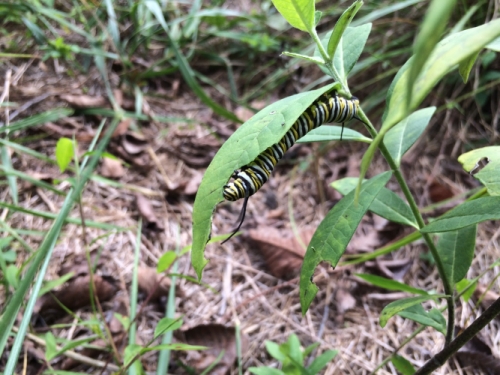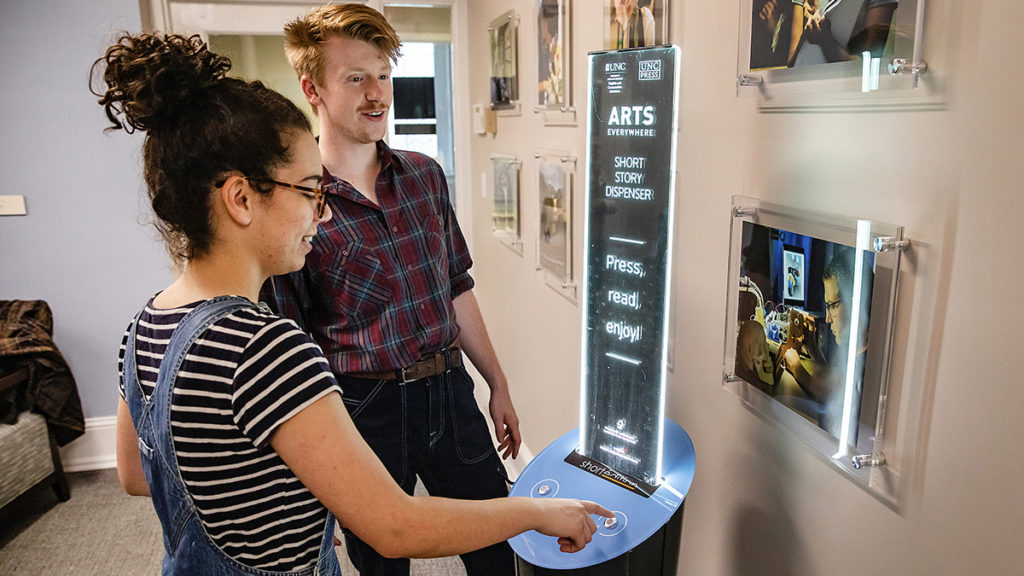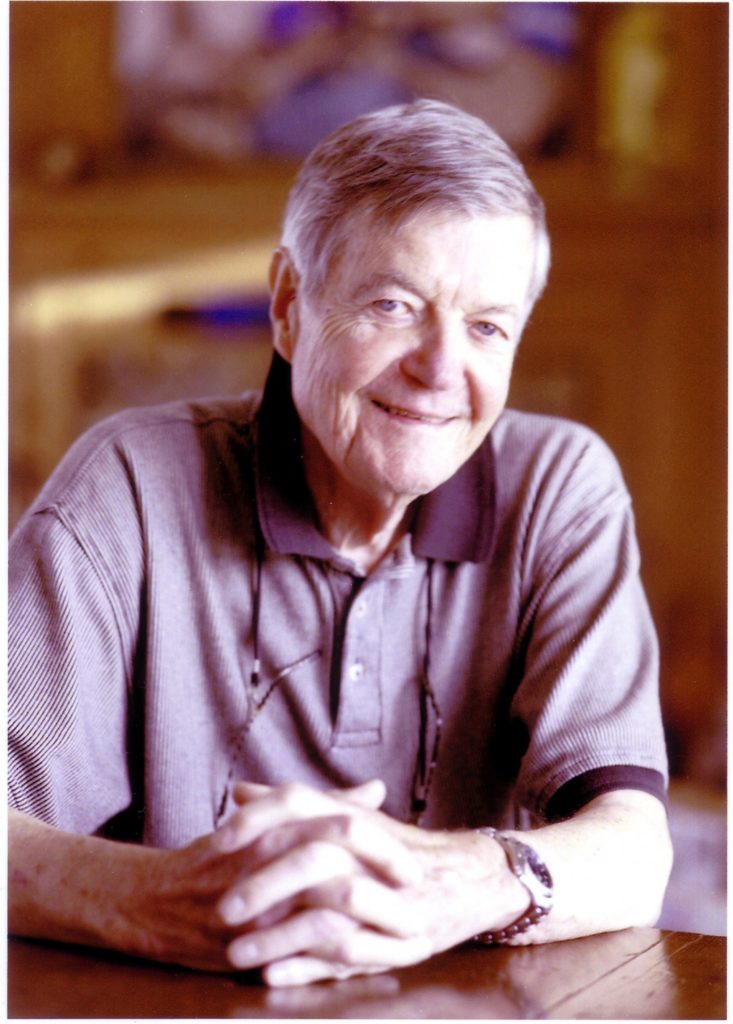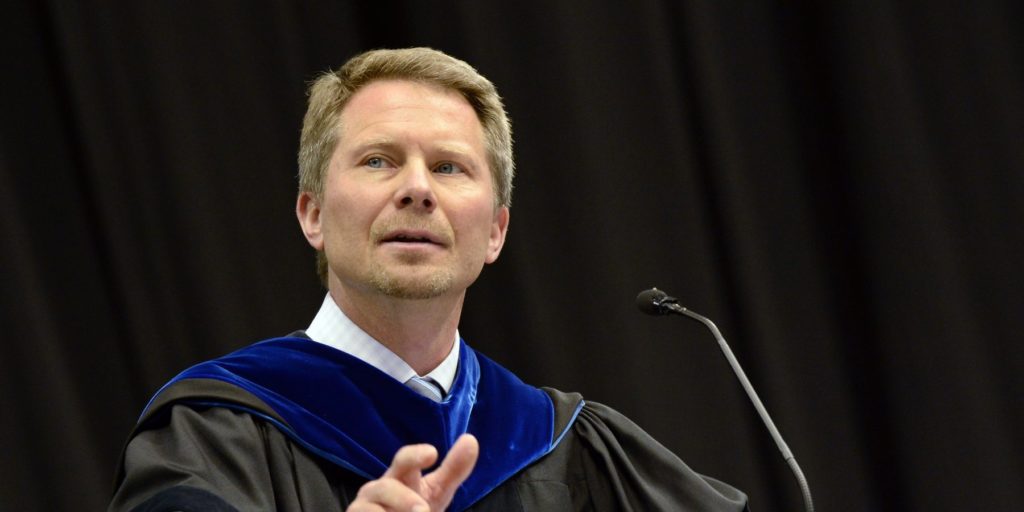Professor Gary Bishop was doing virtual reality before it was cool. Now he uses his computer science background to create books for children with visual impairments and developmental disabilities.
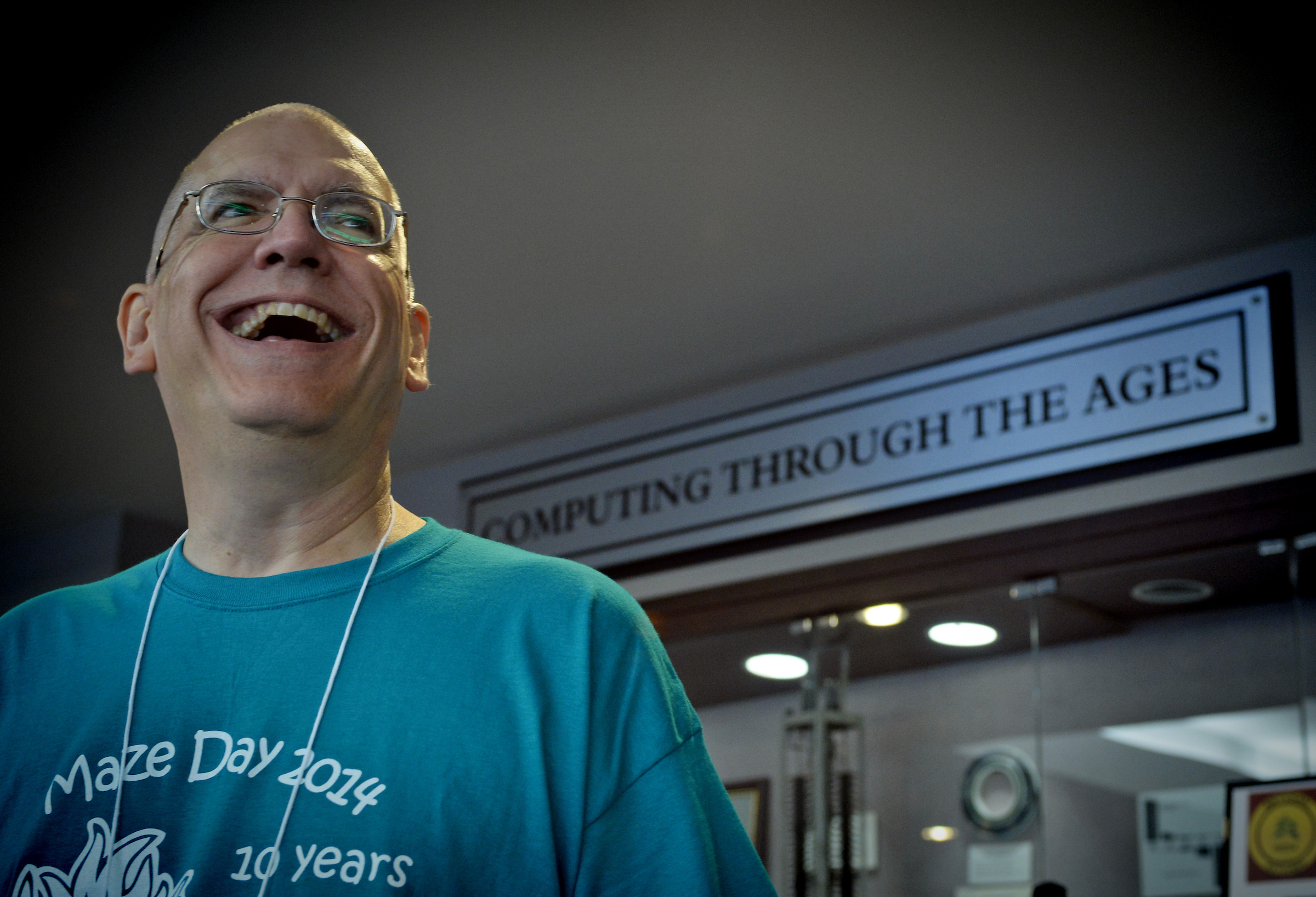
On this episode of Well Said, we hear from computer science professor Gary Bishop, who discusses how he uses computer science magic and how he found that magic here in Chapel Hill.
Transcript
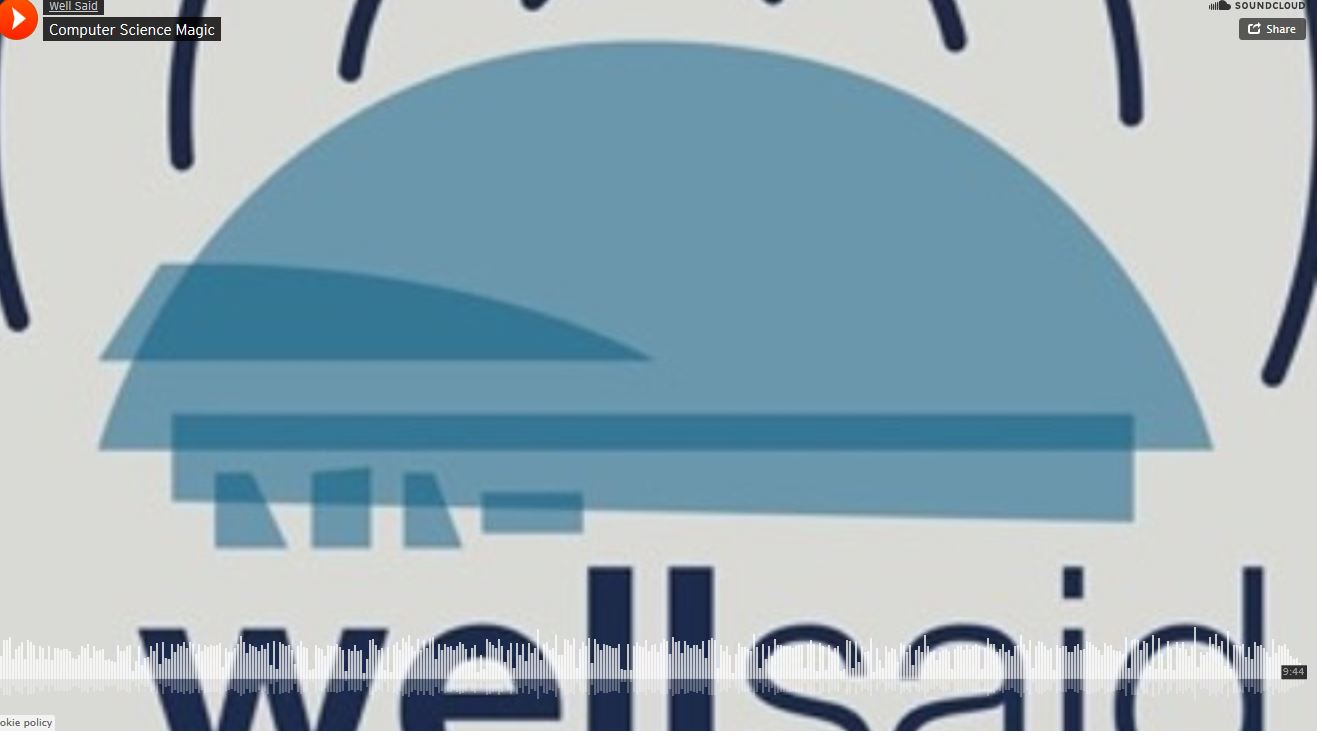 Bishop:One of the talks I give to incoming students is about computer science being magic. I can think about something. I can sit in my office and quietly type, and I can make the world better for kids all over the place.
Bishop:One of the talks I give to incoming students is about computer science being magic. I can think about something. I can sit in my office and quietly type, and I can make the world better for kids all over the place.
Host:Hey, everybody, and welcome to Well Said. This is Carolina’s storytelling podcast. Each week we tell how the fundamental innovation here at Carolina allows faculty, staff and students to have an impact on campus and around the world.
Host:On today’s episode, we talk with computer science professor Gary Bishop. That’s who you heard at the top of the show. We’re going to learn how he uses computer science magic and how he found that magic here in Chapel Hill.
Host:Gary Bishop got his doctorate from Carolina in 1984, and he joined the computer science faculty in 1991. Back then, his research focused on things like 3D graphics, motion tracking and virtual environments.
Bishop:We were doing virtual reality way before it was cool, O.K.? I mean way before it was cool, we were doing virtual reality.
Host:But he wasn’t very satisfied with the work he was doing. Its impact always seemed too far away.
Bishop:We were always saying things, “In the future, physicians may use this technology for X, Y, Z,” but it was always way off in the future.
Host:Bishop was looking for ways he could help people right now. People he felt were often ignored. One day, Bishop went for a walk on campus. He was looking for a way forward to what he felt would be more impactful, more rewarding research.
Bishop:I’m out walking on campus, and here comes this guy the other way.
Host:That guy was a blind man with a guide dog. Bishop wanted to stop him but didn’t want to come off rude, so he passed him by.
Bishop:And he stops and says, “Could you tell me what street I’m on?” And I said, “You’re not on a street. You’re on the sidewalk behind South Building.” He says, “Ah, the dog turned at the wrong place.” I say, “Well, can I help you get where you’re going?”
Host:Bishop and Jason, the guy with the guide dog, had a conversation. After that meeting, Bishop guided four students in building an audio map of Britain under Roman rule that Jason could move around, hear what was nearby and think about the relationships between things. Jason, a doctoral student in the classics, was able to write a research paper based on what he learned from that map. And Bishop found what he was looking for.
Bishop:And one of those students told me, “This is the first thing I’ve worked on in college that mattered,” and I thought, “Wow! This is O.K.”
Host:He started teaching a special topics course about enabling technology.
Bishop:I think of it as technology to enable people with disabilities to do things they couldn’t otherwise do. We’re enabling children to learn, to play, to communicate, those kinds of things.
Host:The kids that Bishop wants to enable vary a lot. They might have visual or hearing impairments. And some are intellectually or developmentally disabled. Bishop and his students have helped kids all over the with world in different ways. Hark the Sound is a simple game for blind kids. He shipped CDs of that game worldwide.
Bishop:I have braille letters in my office from India asking for copies of this CD to use in their blind classroom.
Host:There’s also Maze Day, a field trip designed for visually impaired students. Bishop’s computer science students create games, mazes and experiences specifically for them.
Bishop:They go on the field trip with the other kids, but they’re like the caboose. What’s at the zoo for a blind kid? Some stuff, but it’s not the same kind of experience that a sighted kid has. Maze Day is for them. The teachers tell me in the fall when they come back to school, they’re talking about Maze Day.
Host:And then there’s Tar Heel Reader.
Bishop:Tar Heel Reader is a website. It’s a collection of easy-to-read, accessible books.
Host:Bishop and students designed an interface with the image hosting site Flickr, so people could search for pictures and add words to them. Make it easy for people to write a book. The idea for Tar Heel Reader came from a discussion about 10 years ago with Karen Erickson, a faculty member in the UNC School of Medicine. They talked about the lack of books developmentally disabled kids have.
Bishop:A typical first grader has access to a thousand books I’m told, and the typical disabled kid had access to none.
Host:Using Flickr’s application programming interface, or API, Bishop built a prototype for Tar Heel Reader in about three days.
Bishop:And so it was pretty crinky, but you could search for pictures and find them, and then you could write a little text for each picture.
Host:He sent an email to Karen Erickson about the prototype, and she and her students wrote a few books later that night. Then word of the site got out.
Bishop:People are coming from all over, and it’s not really ready for that because it’s just a prototype, but here they come, and I’m furiously working on it.
Host:Since then, Bishop and some of his students have refined the site. But people are still coming from all over the world.
Bishop:People all over the world create books in 20-something languages now. Over 11 million books read 11.7 now I think million books read all over the world — literally all over the world.
Host:These books on Tar Heel Reader are designed for a beginner. They’re meant for a developmentally disabled kid who’s just learning how to read. And they’re designed to give that disabled kid access to something he or she might not have.
Bishop:You’re 12. They’ve just figured out that you could learn to read, so now what you need are those books that most kids get when they’re 3 with the big picture and a few words, but nobody publishes those books for 12-year-olds, and if all you’ve got for me to read are fuzzy farm animals, maybe I don’t want to learn to read.
Host:Now, thanks to Tar Heel Reader, that disabled kid who’s beginning to read has access to more and more books. Many of these books have a surprising subject — ceiling fans.
Bishop: You could’ve given me a long time to write books, and I wouldn’t have thought of writing books about ceiling fans, but it turns out that lots of kids with autism think ceiling fans are the most interesting thing in the world, and so teachers out there know this, and so they write books about ceiling fans, and then their kid with autism is excited to read that book because ceiling fans are super interesting to me, so you can create the content that suits the child.
Host:Whether that content is a game, an interactive activity or something else that he and his students design, Bishop says it’s way more than that.
Bishop:It’s an opportunity to free a kid from some kind of very strange prison. Kids get opportunities that they wouldn’t have. There are tons of kids who get taken to school in the morning and sit there, and then they get taken home in the afternoon, and we’ve got to convince people that these kids could learn, could read, could write, could communicate, could contribute in interesting ways. Raising the bar is a way to alert people that I’m smarter than you think I am.
Host:And while giving visually impaired, developmentally disabled or other kids a chance, he’s also giving his own students the opportunity for their work to make a difference right away.
Bishop:We’re giving kids a way to use their skills that obviously matters. You know, you do your homework, you turn in your assignments, but did it matter? Here was something that actually mattered.You can think, type and make the world a bit better. That’s amazing power.
Host:For Bishop, using this power to improve the lives of kids all over the world is extremely rewarding.
Bishop: This is the most important work I’ve done in my life. I’ve got patents and papers and all those things. This is the most important work I’ve done. No question. It’s pretty simple stuff. It’s not rocket science, but it needed to be done.
Host:You can learn more about Maze Day in a story about the 14th annual event that happened this past May. That’s at UNC.edu.
Host:And to write your own picture book for Tar Heel Reader or to just check it out yourself, go to TarHeelReader.org.
Host:Have a great story idea for Well Said, or would you like to just let us know what you think of the show? We’d love to hear it on Twitter at UNC. Thanks for listening.

